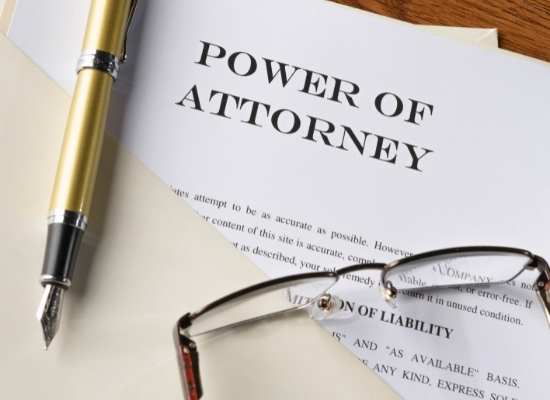In this video, Attorney and Mediator Philip Hundl talks about two more tips for success in land dispute mediation. Call or text 800-266-4870 for an appointment. Our appointments can be in person, online, or by phone.
Summary of Land Dispute Mediation Tips – Part Five
Hi, I’m Philip Hundl. I’m an attorney and mediator. My practice area focuses on mediating land disputes. We’re back with the final two land dispute mediation tips in successfully mediating a land dispute. We’ve worked our way all the way from one to eight. Now we’re at nine and 10.
These tips are ordered chronologically. We started with preparations for mediation, then talked about conducting the mediation, and now we’re talking about finishing the mediation.
Number Nine – Memorialize the Agreement Before Leaving Mediation
Make sure and memorialize the agreement that’s been reached in writing. It sounds like it’s a no brainer. You may say of course that will be done at a mediation.
However, sometimes in an effort to get out, beat traffic, and head home, agreements aren’t memorialized. You’ve potentially wasted the whole day, especially when you’ve got a deal done.
Some folks think that everyone’s going to come back and sign it. Sometimes they do. Sometimes they don’t. So make sure that you get the mediation settlement agreement in writing accurately, properly.
Standard mediation settlement agreements have boilerplate language that I really expect that the parties and the attorneys will read ahead of time. I send those sections out ahead of time.
Then there’s the customized section. That’s the part that is unique to the case being settled. Make sure all the language in the boilerplate section and the customized section accurately reflect the parties’ agreement.
As a mediator, I’m going to do my best to keep track of the topics that are in dispute or agreed upon. I’m also going to cross reference the settlement agreement to make sure it accurately reflects everything that was agreed to by the parties, to make sure there are no omissions.
It is later in the day, and typically everyone’s a little tired. But I suggest that the attorneys go to a room and review it without any distractions.
Folks going to be talking if you’re in a room with your clients or with the opposing counsel. Could someone be distracting you, talking to you while you’re trying to focus? Absolutely. So go and try to focus on the settlement document to make sure it accurately reflects everything that has been discussed and resolved. Include provisions in the boilerplate portion covering what happens in a breach or an interpretation dispute. Will the mediator act as an arbitrator to then to make interpretations of the settlement agreement? Are there other notice provisions if there are breaches by any of the parties? Make sure those things are included as well.
Attorneys go over the settlement agreement with your clients and allow them time to digest it, read it, and understand it. They may be able to remember something that’s been omitted or recognize something that’s not exactly the way they understood the deal.
Number Ten – Attorneys Ensure that the Settlement Agreement Is Completed
Number 10 to complete the settlement agreement. So you’re done, great. Attorneys, you’re going to close the file and call it a day. No, not so fast my friend.
You’ve got this settlement agreement, make sure that you and your client comply with the actions set forth in the settlement agreement. The last thing you want to do is leave mediation with a good agreement and then fail to comply with that agreement.
Actions for the Attorneys
Usually, the lawyers will finalize an easement document. You’ve got all the terms set out in the settlement agreement, but you’re going to finalize that easement agreement and everybody’s going to sign. Make sure all those things get done.
It’s very easy to put this off after mediation. I’ll do that later this week becomes not getting it done in two or three or four weeks. So attorneys, make sure these things are done.
In condemnation cases make sure those releases of lis pendens are recorded. In a condemnation case, most of the time of condemnor is going to record a lis pendens showing that there’s a condemnation lawsuit related to this property. Make sure those get released.
If we’ve got a partition, get those partition deeds recorded. If there are easements related to the partition or easements related to an easement dispute, make sure those get recorded. With lawsuits, get those dismissals or nonsuits filed or agreed judgements filed as well.
Actions for the Clients
Part of the settlement agreement might be that your client’s going to pay the other side a certain amount of money. Encourage your client to get that done when called for by the agreement.
If there are things that they are supposed to do, make sure they are done. These could be specific performance items like building a fence, moving some dirt, or building a road. Let’s make sure that that’s complied with. The last thing you want is to be forced into a new lawsuit for breach of this settlement agreement.
Actions Involving the Central Appraisal District
When there are changes of ownership like a partition of land, the Central Appraisal District (CAD) is involved. The CAD will normally do a sweep of the deed records, and they would pick up that partition deed, but I strongly recommend contacting the CAD.
I recommend that you contact the central appraisal office, and send them a copy of the executed and recorded partition deed.
Be wary. If some of the land had ag valuation, the CAD could switch it back to a market valuation. So be ready to resubmit the application for ag valuation if the use doesn’t change.
Enforcement of the Settlement Agreement
You’ve complied with the settlement agreement. you’ve done everything that’s required of you, but the other side hasn’t. The settlement agreement may provide how you give notice that the other side forgot to make a payment or some specific performance item. You can warn the other side to take action or they will be in breach.
Perhaps there are some ambiguities or some interpretation is needed. Most of the time in my settlement agreements, it says the mediator would, if the parties agree right, will arbitrate any disputes related to the settlement agreement. Or the parties agreed to go back to the mediator to mediate that dispute before filing a breach of contract suit.
So hopefully those tips are helpful. We’ve got an e-book summarizing these land dispute mediation tips, that is downloadable by clicking this link. You’ll get more information on mediation, alternative dispute resolution, and a little bit more about the process with this ebook. Good luck.

